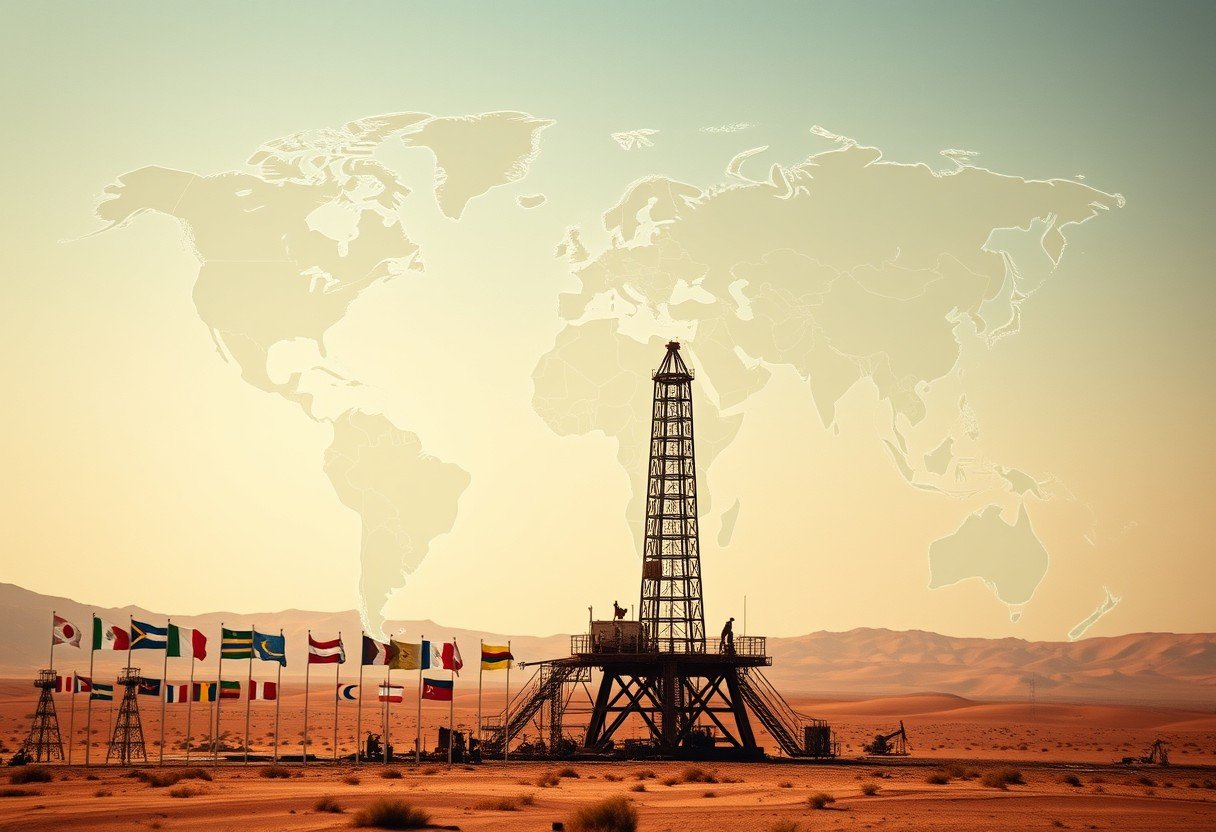Understanding global oil production is about more than just knowing who pumps the most barrels. It’s about identifying which country can produce oil at the lowest opportunity cost, a concept known as comparative advantage. This principle shapes international trade, influences gas prices, and impacts economies worldwide. By looking at factors like technology and natural resources, you can see why some nations lead the pack and what it means for everyone else.
What is Comparative Advantage in Simple Terms?
At its core, comparative advantage is an economic idea that explains how countries benefit from trading with each other. It doesn’t focus on who can produce the most of something, which is called absolute advantage. Instead, it looks at who can produce something more efficiently.
Think of it this way: even if one country is better at producing everything, it still makes sense for it to focus on what it’s best at. By specializing, countries can produce more goods overall. This leads to more efficient use of resources, lower prices for consumers, and economic growth for everyone involved.
Comparative advantage is about producing at a lower opportunity cost, not just producing the most. Opportunity cost is the value of the next best thing you give up. For a country, this means choosing to produce oil instead of using those same resources, workers, and capital to produce something else, like cars or electronics.
Key Factors that Determine Oil Production Advantage
A country’s comparative advantage in oil production doesn’t come from a single source. It’s a combination of several crucial elements that work together to lower the opportunity cost of extraction. When you analyze the global market, these factors are what separate the leaders from the rest.
The most obvious factor is the amount of natural resources available. A country with vast, easily accessible oil reserves has a natural head start. However, having reserves isn’t enough. The cost to get that oil out of the ground is just as important. Some oil is cheap to extract, while other reserves require expensive and complex technology.
Several key elements shape this advantage:
- Natural Resource Abundance: The size and accessibility of a country’s oil reserves. Shallow, conventional wells are cheaper to operate than deep-sea or oil sand projects.
- Technological Capabilities: Investment in advanced drilling and extraction technologies can dramatically lower costs and unlock previously unreachable reserves.
- Political and Economic Stability: A stable government and a predictable investment climate attract the capital needed for large-scale oil projects.
Ultimately, the nation that combines these factors most effectively can produce oil at the lowest relative cost, giving it a powerful edge in the global market.
Top Countries in the Global Oil Market
Three countries consistently dominate the global oil production landscape: the United States, Saudi Arabia, and Russia. Each has a unique mix of factors that contributes to its comparative advantage, allowing them to influence global supply and prices significantly.
The United States leverages advanced technology, particularly hydraulic fracturing and horizontal drilling, to unlock vast reserves in shale formations. While its extraction costs can be higher, its technological edge gives it a strong competitive position. Saudi Arabia, on the other hand, benefits from enormous, easily accessible conventional reserves, making its production costs among the lowest in the world.
Russia combines large reserves with extensive infrastructure, including a vast network of pipelines, giving it strategic access to both European and Asian markets. Their different strengths show that there isn’t one single path to gaining a comparative advantage in oil.
| Country | Primary Advantage Factor | Key Characteristic |
| Saudi Arabia | Abundant & Accessible Reserves | Extremely low cost per barrel. |
| United States | Advanced Technology | Leader in shale oil extraction. |
| Russia | Geographical Access & Reserves | Vast pipeline network to key markets. |
How Technology is Changing the Game in Oil Extraction
Technology has been a revolutionary force in the oil industry, completely reshaping which countries hold a comparative advantage. Not long ago, it was thought that global oil production had peaked. However, innovations have unlocked massive new sources of oil and dramatically lowered the cost of extraction in many regions.
The most significant breakthroughs have been hydraulic fracturing, also known as “fracking,” and horizontal drilling. These techniques made it possible to extract oil and gas from tight shale rock formations, something that was previously uneconomical. This technological shift is the primary reason the United States transformed from a major oil importer to one of the world’s top producers.
These advancements do more than just increase supply. They also make production more efficient, reducing the labor and capital needed per barrel. Countries that invest heavily in research and development for extraction technologies are better positioned to adapt to market changes and maintain their competitive edge for years to come.
The Impact on Global Trade and Your Wallet
The concept of comparative advantage isn’t just a theory for economists; it has real-world consequences that affect international relations and the price you pay at the pump. When countries specialize in what they do best, they produce a surplus that they can export to others.
A nation with a comparative advantage in oil can sell its surplus on the global market, which boosts its economy and influences global energy prices. For countries that are not efficient oil producers, it makes more economic sense to import oil rather than try to produce it at a high opportunity cost. This creates a complex web of trade relationships built on energy dependence.
These dynamics directly impact non-oil-producing nations. Their economies are vulnerable to fluctuations in global oil prices, which can affect everything from shipping costs for consumer goods to public transportation fares. This is why many countries are pushing to diversify their energy sources to reduce their dependency on a volatile market.
The Future of Oil Production and Emerging Players
The global energy landscape is constantly changing, and the future of oil production will look different from today. Two major forces are driving this transformation: the rise of new oil-producing nations and growing pressure from environmental policies. These trends could shift the balance of power and redefine comparative advantage.
Emerging markets are set to play a larger role. Countries like Guyana, Brazil, and Mozambique have discovered significant offshore oil reserves and are ramping up production. As these new players enter the market, they could increase global supply and challenge the dominance of traditional producers.
At the same time, the global push to combat climate change is leading to stricter regulations on carbon emissions. Policies aimed at promoting renewable energy and reducing fossil fuel reliance will force the oil industry to adapt. Oil-producing nations that invest in cleaner extraction technologies and diversify their economies will be better prepared for a lower-carbon future.
Frequently Asked Questions about Oil Production
What is the difference between absolute and comparative advantage in oil?
Absolute advantage means producing more oil than another country with the same resources. Comparative advantage means producing oil at a lower opportunity cost, making it more efficient even if production volume is lower.
Why is Saudi Arabia so efficient at producing oil?
Saudi Arabia’s efficiency comes from its vast, conventional oil reserves that are close to the surface and easy to access. This geological advantage results in one of the lowest extraction costs per barrel in the world.
Can a country with few oil reserves have a comparative advantage?
It’s highly unlikely. While technology can improve efficiency, a comparative advantage in oil production fundamentally relies on having accessible natural reserves. A country without reserves would have an infinitely high opportunity cost.
How do politics affect a country’s comparative advantage in oil?
Political instability, sanctions, or regulations can increase the cost and risk of oil production, weakening a country’s comparative advantage. Conversely, stable governments that encourage foreign investment can strengthen it.
Will renewable energy make oil’s comparative advantage irrelevant?
While the transition to renewable energy will reduce global oil demand over time, it will not happen overnight. For the foreseeable future, oil will remain a critical commodity, and the comparative advantage in producing it will continue to shape global economies and trade.









Leave a Comment